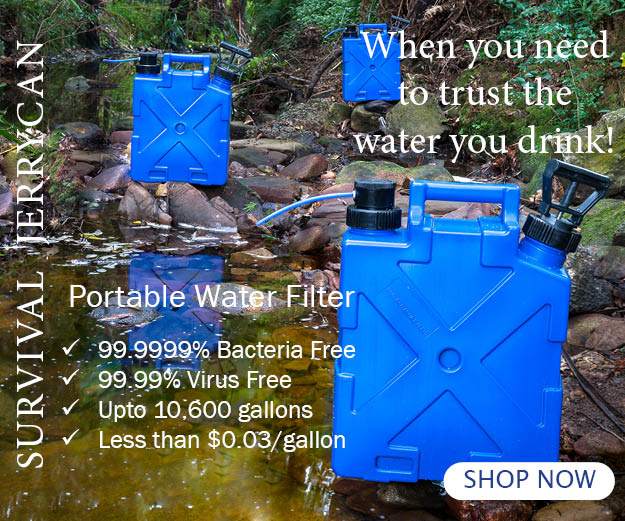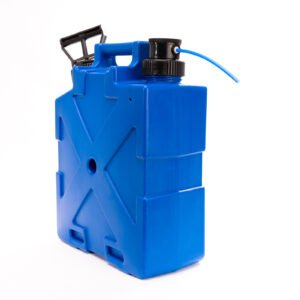Chlorine in water is a complicated issue. On one hand, chlorine is a naturally occurring element and a powerful disinfectant. When it comes to water purification, chlorine works. Used to treat the city water supply in many metropolitan areas, chlorine can help to prevent nasty waterborne diseases like cholera. On the other hand however, regular high doses of chlorine are not a good idea.
Chlorine has a chemical reaction with any organic matter present in the water, which creates trihalomethanes (THMs) such as chloroform as a bi-product. The health risks of ingesting THMs are not fully understood, so it’s difficult to dispel or confirm the man myths circulating about the effects of drinking water containing chlorine.
However, research suggests that ingesting a large dosage of THMs can have adverse health effects, and so it’s best to avoid methods of water treatment like water purification tabletsthat rely on chlorine.
The main argument for avoiding chlorine in water is that chlorine can react with organic matter to create chloroform, a type of THM. Chloroform has been linked to the formation of many types of cancer, but the connection is uncertain. Chloroform can also be present in air and food, so it’s difficult to determine how much damage the presence of chloroform in water is doing.
Despite links between chlorine and chloroform, chloroform and cancer, according to the Australian Cancer Council: ‘There is no evidence for the myth that drinking chlorinated water or swimming in chlorinated pools can cause cancer.’ So if your city’s water treatment facilities use chlorine, don’t worry, there isn’t necessarily a need to filter it out. Chlorine is certainly safe in small doses.
Swimming pools often contain high levels of chlorine. This is for a reason: they keep it sanitary. If the pool is correctly chlorinated, you’re unlikely to get sick from the presence of e-coli and other nasties in the water. However, liquid chlorine is extremely dangerous, so be wary of other people’s home pools. If you own a pool make sure to sanitize it accurately and keep the chemicals in a safe place.
Basically, chlorine is one of those tricky gray areas. Just like so many other things teetering on the line between good and bad, health and profit (think GM food, weight loss pills, fizzy energy drinks, flirting with your boss), it’s hard to know where you stand. A healthy way to approach chlorine in water is not to worry so much that you opt for bottled water over tap water (bottled water has its own unique set of evils), but not to rely on water filtration devices that rely on chlorine as a disinfectant.
Where is Sure Aqua in all of this? Sure Aqua recognizes that chlorine is what it is. It doesn’t filter it out. If the water treatment facility in a particular city has deemed it appropriate to put chlorine into the water, it’s probably necessary. Chlorine kills bugs and the amount of chlorine that they are allowed to use is harmless. Most countries allow a maximum of 5mg for every liter of water, but the presence of chlorine in most areas is much less than that.
However, no Sure Aqua products use chemicals to filter water. Therefore, Sure Aqua filtration is completely safe, providing you with nothing but clean water and peace-of-mind.


